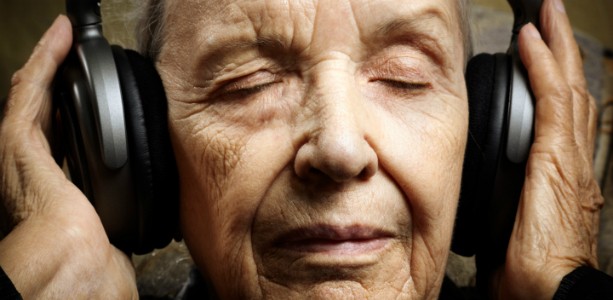Music continues to unlock doors of people with dementia enabling their real personality to shine
Thursday, February 25th, 2016 | Blog
If words are the limited language of my mind, music is the limitless calling of my soul - Frank Fitzpatrick
There is a definite understanding that exposure to the arts can help people with dementia to reconnect with themselves and even slow their rate of decline. Increasingly, music is helping doctors and carers reach those who have become stranded by this debilitating condition.
Dementia is simply a terrible disease which affects approximately 850,000 in the UK. The level of diagnosis, understanding and awareness is still shockingly low.
However, there increasing numbers of organisations formed to improve lives of those with dementia such as the charity, ‘The lost Chord’ who produce more than 1,300 interactive musical sessions a year in 130 homes, designed to stimulate responses from people with dementia through the media of music, song and dance. They aim to have a positive and therapeutic effect on dementia by using music to stimulate the areas of the brain which are still intact. They hope to maintain some sort of communication with residents for a longer period of time through the different stages of the disease. This is particularly important where verbal communication is no longer possible.
Helena Muller, founder of Lost Chord, has witnessed the miracle of music with dementia sufferers first hand and says: "Music unlocks that door behind which a frightened, intimidated and humiliated person hides. It seems to reach into their very soul, unlocking the door and enticing them out of that dark lonely world of dementia."
They have had some remarkable responses to their work: “Each month those of us involved in the scheme experience new dimensions of its effectiveness, which merely confirms clinical evidence that there are certain areas of the brain associated with musical patterns which remain potentially responsive, even when other areas have virtually deteriorated.”
Robert Howard, Professor of Old Age Psychiatry and Psychopathology at the Institute of Psychiatry, King's College London, says "Conditions such as Alzheimer's affect the ability to make new memories and to decode language," he said. "Music is evocative to some patients and can reach down into their memory. Patients who normally struggle to find the right words can sing a song because a deep memory is triggered. It starts a tape running in their brain."

Doesn’t this all make perfect sense? From the minute we are born we are subjected to music in various forms, initially nursery rhymes of which many, we can recount word-for-word well into adulthood: They are ingrained into us.
So the phenomenon of music continues to have a profound affect throughout our lives. We may have a special song, band or genre which we can link to a specific moment, era or a time of our lives. For example, what was your wedding song? Have you been to see a band or witnessed a marvellous event which was accompanied by music. One song that sticks in my mind was the Underworld’s ‘Calibans dream’ which all the Olympic athletes paraded round the stadium to during the opening of the London Olympics in 2012. At the time it truly resonated in me and when I hear it again, it carries me back to that wonderful and exciting gathering of humanity.
We all have different tastes and different songs that will hold great sentimental value to us; that may have the ability to transport us back to a time and place, complete with all the emotions intact.
Want to see the power of music in action? Below is a link to YouTube video which went viral. It features an elderly man in a nursing home who doesn’t recognize his daughter when she greets him. His name is Henry and he’s slumped over in his chair. He barely answers questions. Then someone gives him an iPod and everything changes. He begins to dance in his seat. He hums along with the music. After listening, Henry lifts his eyes and begins to gush about coherently his love for jazz singer and bandleader Cab Calloway.
http://articles.latimes.com/2012/apr/11/nation/la-na-nn-viral-video-music-therapy-20120411
The evidence of the benefits of music is overwhelming: Music helps a person to access precious memories that may have thought to be lost. It can also be a source of comfort where words fail, serving as a means of emotional and physical expression and release.
“One good thing about music, when it hits you, you feel no pain” – Bob Marley
Music is good for the soul…so turn it up!














